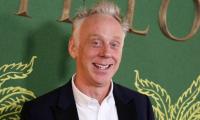Part II: Voice of Sindh
The eighth Ayaz Melo in Hyderabad, held from Dec 23 to Dec 25, presented over 20 sessions and gathered nearly 100 authors, intellectuals and poets from across Pakistan.
Jami Chandio was one of the chief guests. He did not mince any words while criticizing the undeclared ban on free expression in universities across Pakistan. “Universities do not invite enlightened and progressive authors and intellectuals as speakers. Higher education institutions are more interested in pseudoscience and ‘spiritual leaders’ instead of those who challenge the official narrative. The state has tried to limit the scope of any enlightened discourse as the overall narrative is anti-literature, anti-knowledge, and anti-people.” Jami believes it is crucial for any society to link internationalism with local realities as there is a need for resistance against orthodoxy. In Pakistan too, the survival of all nationalities depends on how they fight against extremism.
Journalist Asma Shirazi’s maiden book, ‘Kahani Baray Ghar Ki’, was launched on the first day. Zakia Aijaz moderated the session, and names like Nazir Leghari, Nurul Huda Shah, Riaz Sohail and Lala Rehman Samon discussed the book. Asma also spoke about Shaikh Ayaz and stressed the need for propagating his message. She appreciated the way Sindh has promoted its language whereas Punjab has not valued its own culture and language as much. Asma’s writing is also quite compelling; she raises questions that usually get neglected in society amid a plethora of political writings.
Rights activist Naeem Mirza’s marvellous book, ‘Tareekh ki Azeem Feminist Auratain’, also received appreciation at its launch. Saba Hussain conducted the session well, while Mehnaz Rehman with Attiya Dawood spoke about the book. Attiya Dawood reminded the audience that most history books deal with men while neglecting the role women played over the centuries, highlighting how women have not received their due appreciation. Mehnaz Rehman recalled that many philosophers from Aristotle to Rousseau displayed misogyny in their writings.
In the session on ‘Ideological Sources of Ayaz’ which Naz Sehto moderated, Imdad Chandio, Madad Ali Sindhi, and Ayesha Siddiqa discussed whether a poet can get inspirations from political developments. Madad Ali Sindhi opined that a major portion of the poetry that Ayaz penned emanated from his political ideals. “From the freedom struggle against the British to the post-independent political developments, Ayaz was not only a keen observer but also an active participant. He remained a progressive activist and intellectual throughout his life, though in his old age he was not as active politically.”
Ayesha Siddiqa also highlighted the differences and similarities between how Syed Sibte Hasan and Shaikh Ayaz looked at the world and responded to its challenges. She highlighted that essentially Ayaz was a Sindh nationalist, but of course Sibte Hasan was not. However, both had close connection with the land where they lived. Both were ready to sacrifice their freedom and willing to go to jail if that was the cost they had to pay for their association with their people.
“Ayaz never considered martial rule good for society as he was never a reactionary and always sided with the people of his land. His commitment was unquestionable, as he always advocated for more opportunities and equal treatment for women in society.”
Imdad Chandio – a former student activist and leader of the Democratic Student Federation (DSF) in the 1980s – is an active member of the Ayaz Melo team. He has the distinction of having spent six years behind bars under the dictatorship of Gen Ziaul Haq. At his session, he said he was proud that Sindh always rejected right-wing parties. “Ayaz considered literature as the main compass of society that shows direction for future actions. If literature is not connected with people, it serves no purpose. But politics is just one aspect of literature and the same is evident in Ayaz’s writings too.”
Syed Sardar Shah has been doing a good job as the Sindh minister for culture by supporting these festivals which offer a good opportunity to the people of Sindh to listen to many intellectuals and scholars at one place. The culture department of the Sindh government has been outperforming all other similar departments in other provinces. Sardar Shah makes sure to visit these festivals and share his thoughts. He is articulate and convincing in his discourse. Unlike many other ministers, he appears to be a reader, and this reflects in his speech.
The event also remembered Asif Farrukhi who did so much in Pakistan to promote literary festivals; his legacy lives on. Kashif Raza moderated this session with Nasir Abbas Nayyar, Inam Nadeem and Mustafa Arbab. There was also a session on art, literature and resistance, and the festival did not focus solely on Sindhi. There were sessions with famous Pashto and Punjabi poets as well. Dance and music performances enthralled the audiences, especially Suhaee Abro’s performance was mesmerizing.
The success of this festival is due to the leadership skills of Amar Sindhu and Arfana Mallah who devote so much time and energy in making Ayaz Melo a success. They trained a host of young volunteers who help maintain order at the event. It was also good to see young moderators like Saba Hussain and Altaf Raja who have the potential to groom themselves further.
And now some suggestions for future events. The inaugural session does not need to be that long; this time there were six speakers. And while all of them are excellent speakers, such long sessions risk losing people’s interest. Perhaps one keynote speaker and one chief guest would have been better with inaugural and welcome speeches by Amar Sindhu, Arfana Mallah and the minister. Other speakers could have joined as chief guests at other sessions throughout the inaugural day. Sitting for hours in just one session – even if it is with some outstanding intellectuals – becomes tiring.
The second suggestion is about book launches for which moderators should be much more prepared. The focus should ideally be on what is in the book rather than what it could be. In the recently held event, many speakers indulged in long-winded discussions about theoretical aspects remotely related to the book; the moderators need to control that tactfully.
Some speakers at book launches appear more interested in showing off their academic knowledge by pointing out all the flaws in the book, putting the author in an awkward position. A book launch is not a thesis defence where the writer ends up clarifying why the thesis failed to mention so many events, ideas, and people. There are a hundred ways of writing a book and if the target audience is common readers, the book should be easy to understand, instead of being academically inclined. When a speaker drifts too much off-track, the moderators play their role like Arfana Mallah, Haseen Musarrat, and Zakia Aijaz did in their sessions with articulate interventions.
Concluded
The writer holds a PhD from the University of Birmingham, UK. He tweets @NaazirMahmood and can be reached at:
mnazir1964@yahoo.co.uk
-
 Cardi B Finally Responds To Accusations About Destroying 'SNL' Set After Nicki Minaj Joke
Cardi B Finally Responds To Accusations About Destroying 'SNL' Set After Nicki Minaj Joke -
 Gorton And Denton By-election Result: Green Party Defeats Labour In Blow To Keir Starmer
Gorton And Denton By-election Result: Green Party Defeats Labour In Blow To Keir Starmer -
 Jack Dorsey Cuts 4,000 Roles, Says AI Requires Smaller Teams
Jack Dorsey Cuts 4,000 Roles, Says AI Requires Smaller Teams -
 Reggie Bannister Health Takes ‘difficult Turn’ Amid Dementia, Parkinson’s Battle
Reggie Bannister Health Takes ‘difficult Turn’ Amid Dementia, Parkinson’s Battle -
 'Humble Traitor' Rob Rausch Makes Unexpected Move After Betraying Maura Higgins In Season 4
'Humble Traitor' Rob Rausch Makes Unexpected Move After Betraying Maura Higgins In Season 4 -
 Sarah Ferguson Drops An Accusation Against Andrew? ‘He Just Wants Leverage’
Sarah Ferguson Drops An Accusation Against Andrew? ‘He Just Wants Leverage’ -
 Anthropic Rejects Pentagon Military AI Proposal, Holds Firm On Safety Guardrails —What’s Next?
Anthropic Rejects Pentagon Military AI Proposal, Holds Firm On Safety Guardrails —What’s Next? -
 'Traitors' Reunion Drama: Rob Rausch Defends Strategy, Makes Shocking Revelation After Victory
'Traitors' Reunion Drama: Rob Rausch Defends Strategy, Makes Shocking Revelation After Victory -
 Inside Hillary Clinton’s Epstein Testimony: Key Takeaways And Highlights Explained
Inside Hillary Clinton’s Epstein Testimony: Key Takeaways And Highlights Explained -
 'Too Hard To Be Without’: Woman Testifies Against Instagram And YouTube
'Too Hard To Be Without’: Woman Testifies Against Instagram And YouTube -
 Kendall Jenner Recalls Being ‘too Stressed’: 'I Want To Focus On Myself'
Kendall Jenner Recalls Being ‘too Stressed’: 'I Want To Focus On Myself' -
 Ethel Kennedy’s 34 Grandchildren And The Expanding Kennedy Family Legacy
Ethel Kennedy’s 34 Grandchildren And The Expanding Kennedy Family Legacy -
 Dolly Parton Achieves Major Milestone For Children's Health Advocacy
Dolly Parton Achieves Major Milestone For Children's Health Advocacy -
 'The White Lotus' Creator Mike White Calls 'Survivor' Fans 'sadistic'
'The White Lotus' Creator Mike White Calls 'Survivor' Fans 'sadistic' -
 Oilers Vs Kings: Darcy Kuemper Pulled After Allowing Four Goals In Second Period
Oilers Vs Kings: Darcy Kuemper Pulled After Allowing Four Goals In Second Period -
 Calgary Weather Warning As 30cm Snow And 130 Km/h Winds Expected
Calgary Weather Warning As 30cm Snow And 130 Km/h Winds Expected



